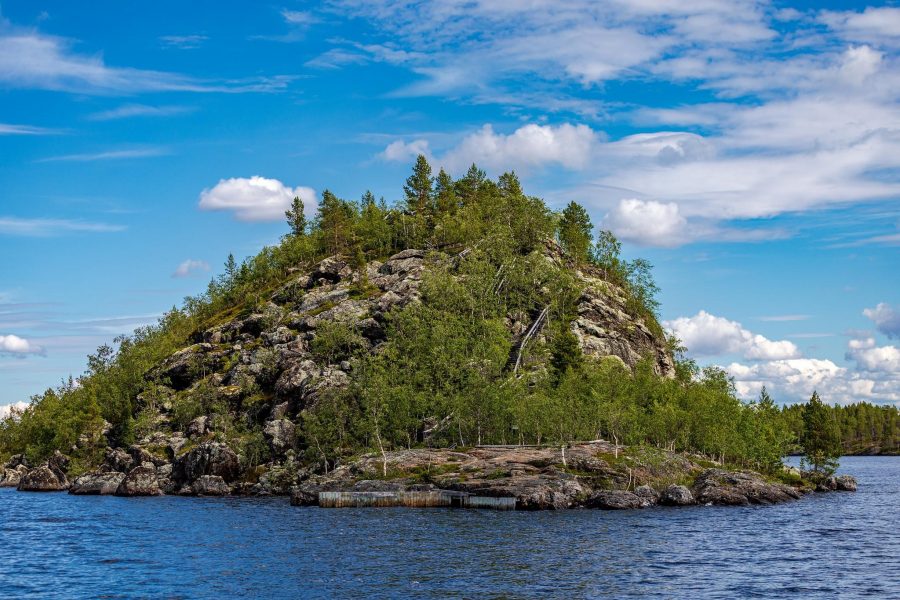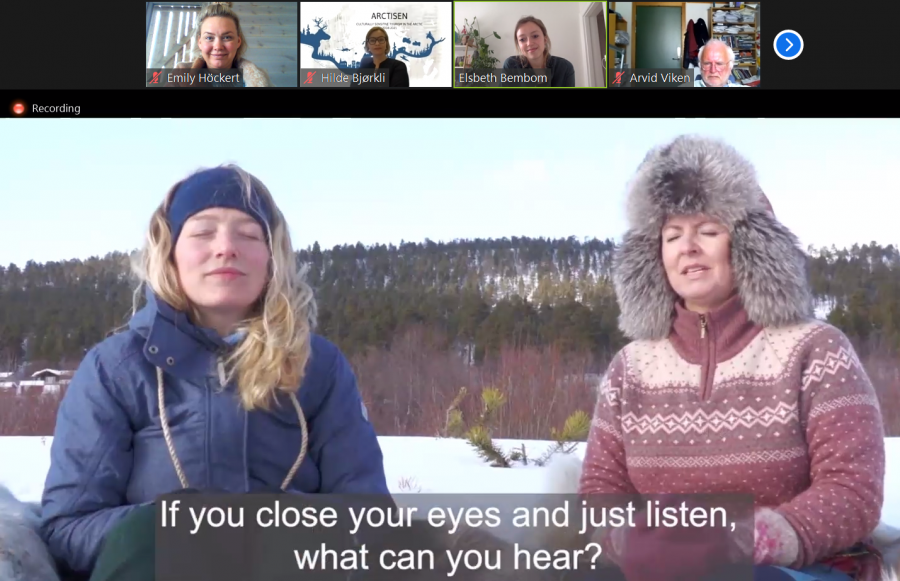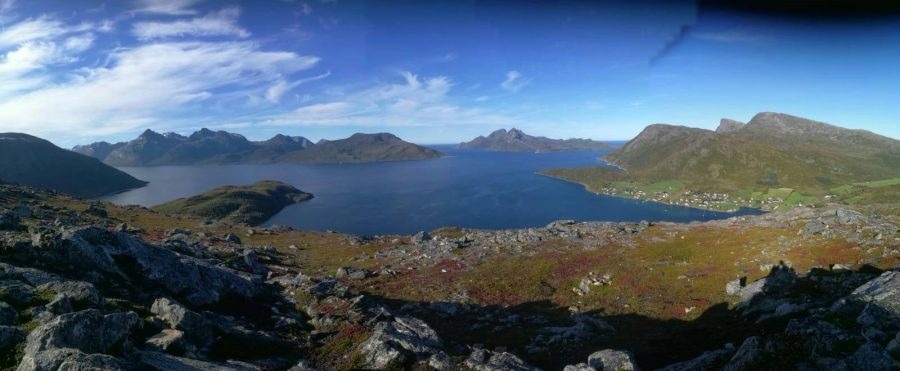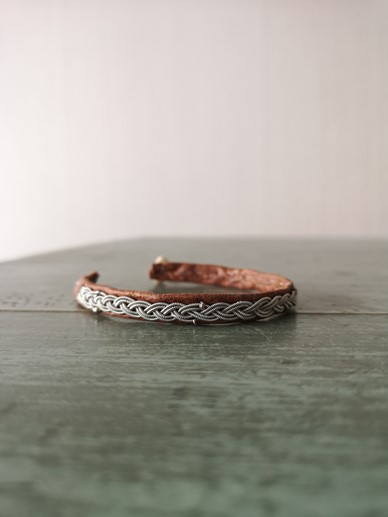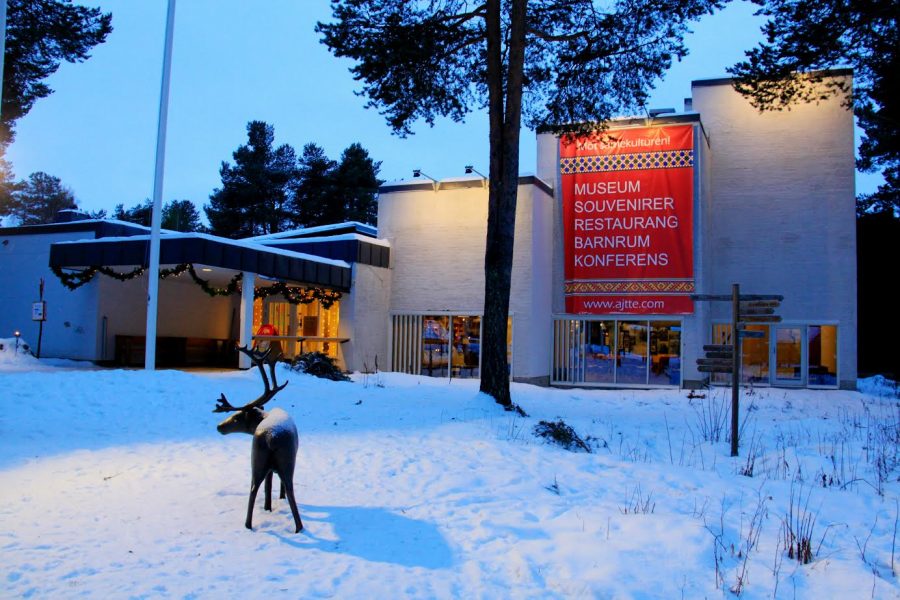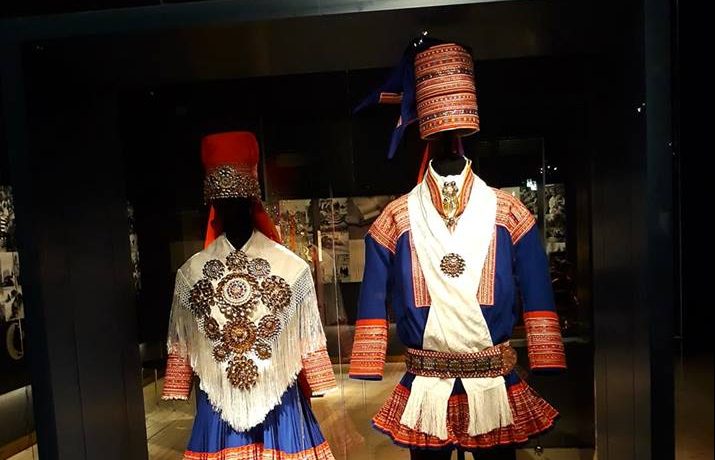A blog post on Eleonora Alariesto’s (2021) research: ‘The conflict of sacred and contaminant: The impurifying effects of tourism in Sámi sacred sites’ by Elsbeth Bembom & Randy Bruin Tourism is one of the fastest growing industries in Sápmi and this growth has led to increased negative environmental impacts, such as soil erosion and pollution. …
Category: Sámi cultures and tourism
May 18
Greetings from virtual benchmark visit in Norway
Text: Randy Bruin, Emily Höckert & Camilla Brattland Videos: Trond Anton Andersen One of the main activities in the ARCTISEN project, are the benchmarking events that bring together different kinds of tourism actors across the Arctic. The first benchmarking trip took place in Greenland (read more here and here) in December 2019. This trip was …
Apr 14
Who needs guidelines for culturally sensitive tourism?
Text: Monika Lüthje In our previous blog post Kjell Olsen and Outi Kugapi discussed about guidelines and roadmaps for culturally sensitive tourism. They pointed out that local entrepreneurs are not waiting or hoping for new guidelines to run their tourism businesses in a culturally sensitive way. This approach is understandable: being part of the local …
Mar 05
REINVENTING STORIES IN ARCTIC TOURISM DESTINATIONS: Cultural sensitivity in times of the pandemic
Text: Elsbeth Bembom & Randy Bruin As explored in the previous blog post on Arctic tourism and the Covid-19 pandemic, tourism entrepreneurs and local DMOs have had to rethink their products and marketing strategies to adapt to a growing staycation market as a consequence of the pandemic. This blog post zooms in on issues of …
Dec 22
ARCTIC TOURISM IN A PANDEMIC: LOSSES, GAINS AND SURPRISING OUTCOMES
Text: Elsbeth Bembom How has Covid–19 affected Arctic tourism and what challenges, trends and innovations are on the rise among local tourism entrepreneurs? During the last few weeks, Elsbeth Bembom from ARCTISEN has been talking to tourism experts from Greenland, Norway, Sweden and Finland to explore Arctic’s current tourism landscape. Corona-proof, behind her desk. …
Jul 01
Authenticity as a compromise: why labels can be very important
Text and photos: Cecilia de Bernardi Since I started my work with Sámi tourism, initially I focused on analysing language, marketing, and specifically how culture is portrayed in pictures. The reason why I started with this is that marketing communication is an important aspect of the process of attracting tourists to a certain place. …
Jun 25
Different Stories: Teaching Sámi Cultures in Tourism
Text and photos: Ella Björn Why learn about Sámi cultures? Indigenous cultures are critical to our planet’s cultural diversity. Over the years in Finland, tourism entrepreneurs have spread stereotypical and inaccurate information about Sámi cultures. Although exploitation in tourism has decreased in recent times and Sámi people have started their own businesses, the need to …
May 13
Greetings from Jokkmokk
Text: Elina Nygård Jokkmokk, just north of the Arctic Circle, has always been an obvious meeting place for trade, gatherings, festivals and meetings between friends. This is the site of Ájtte, Swedish Mountain and Sami Museum, a gateway to the high mountains, to Laponia world heritage area and to the Sami culture. We tell the story …
Mar 26
Some notes on Sami tourism in Sweden
Text: Dieter K. Müller For a long time tourism in northern Sweden has centered around outdoor experiences and wilderness, at least when looking at travel brochures and other promotional materials. However, already early travelers in the North reported about their encounters with local population and not least the Sami, too. The Sami were portrayed in …
Mar 05
Why ARCTISEN?
A brief history of the use of Sámi cultures in Finnish tourism business Text: Monika Lüthje Due to the Finnish school system curricula and government strategies, which aimed at incorporating minorities into mainstream cultural majority, as well as the modernisation of the North, Sámi identities became weaker during the decades after the Second World War. …

